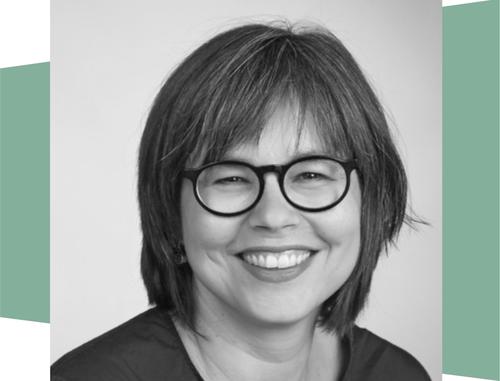Alexandra Schneider
Alexandra Schneider ist Professorin für Filmwissenschaft mit Schwerpunkt Mediendramaturgie an der Johannes Gutenberg-Universität Mainz. Sie lehrte an der Universität Amsterdam sowie der Freien Universität Berlin und war außerdem Vertretungsprofessorin an der Universität Lausanne. Schneider forscht im Bereich der Medienarchäologie mit Fokus auf portable und Kindermedien, zu digitalen Forschungsmethoden sowie den Distributions- und Formatstudien in Bezug auf dekoloniale Perspektiven. Schneiders Publikationen umfassen unter anderem die Monografie Die Stars sind wir: Heimkino als filmische Praxis (2004) und den Sammelband Format Matters: Standards, Practices, and Politics in Media Cultures (hrsg. mit Marek Jankovic und Axel Volmar, 2020). Zu Schneiders vielfältigen Texten und Artikeln zählen "Carole und Brenda: Das Paradox des Stativs und die Archäologie des Amateurfilms" (in Abenteuer Alltag: zur Archäologie des Amateurfilms, hrsg. v. Siegfried Mattl, Karin Fest, Vräath Öhner, 2015) und "Traveling Styles: Towards a Comparative Analysis of Popular Cinema. Or the Challenge of Understanding Hindi Cinema as World Cinema“ (in Cinema & Cie, Bd. 13, Nr. 20, 2013).
Three Quick Questions:
In a few words, can you tell us about your current research interest?
I have always been, and continue to be, interested in non-standard and non-canonical forms and formats of audiovisual culture, not least because they make you leave what you might call the comfort zones of film studies. Furthermore, I believe that as scholars of film and media (well as scholars in general) we have to engage in a reflection on the situatedness of knowledge. Currently I am particularly interested in conversations about de- and postcolonial perspectives in my field of study and about collaborative research, writing and teaching practices.
How do you relate the term poiesis to your work?
Christine Noll Brinckmann, my first academic teacher and later PhD supervisor, is also an accomplished experimental filmmaker. Film analysis, as she taught it to us, was the counterpart or the reverse of the poesis – the poetics and the poetry – of filmmaking. I have no literary studies background myself – my first degree was in sociology –, and I was somehow always also a bit ambivalent about the concept of poeisis. But then, in my dissertation, I studied home movies not from a sociological point of view, but as filmmaking practice. So in a circuitous way poesis caught up with me after all.
Which film or other audiovisual format has resonated with you lately and why?
The first exhibition I visited after the lockdown in 2020 was Enter the Void in the Kunsthalle Mainz. One of the works I saw there was Forest Law by Ursula Biemann and Paulo Tavares from 2014. It addresses the topic of the rights of nature, which is of particular virulence right now. But it was the overall constellation of this work which intrigued me the most: an eye-to-eye conversation between the videographers, the filmed human and non-human subjects and the spectator.
